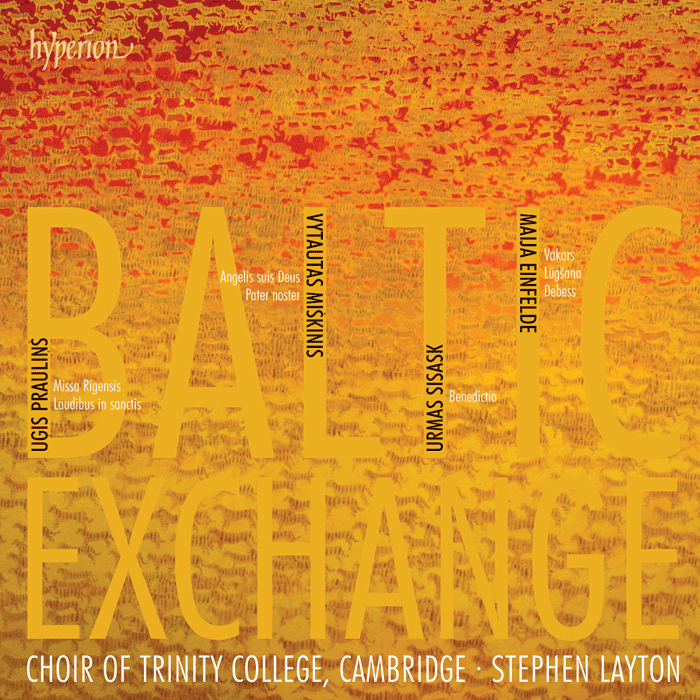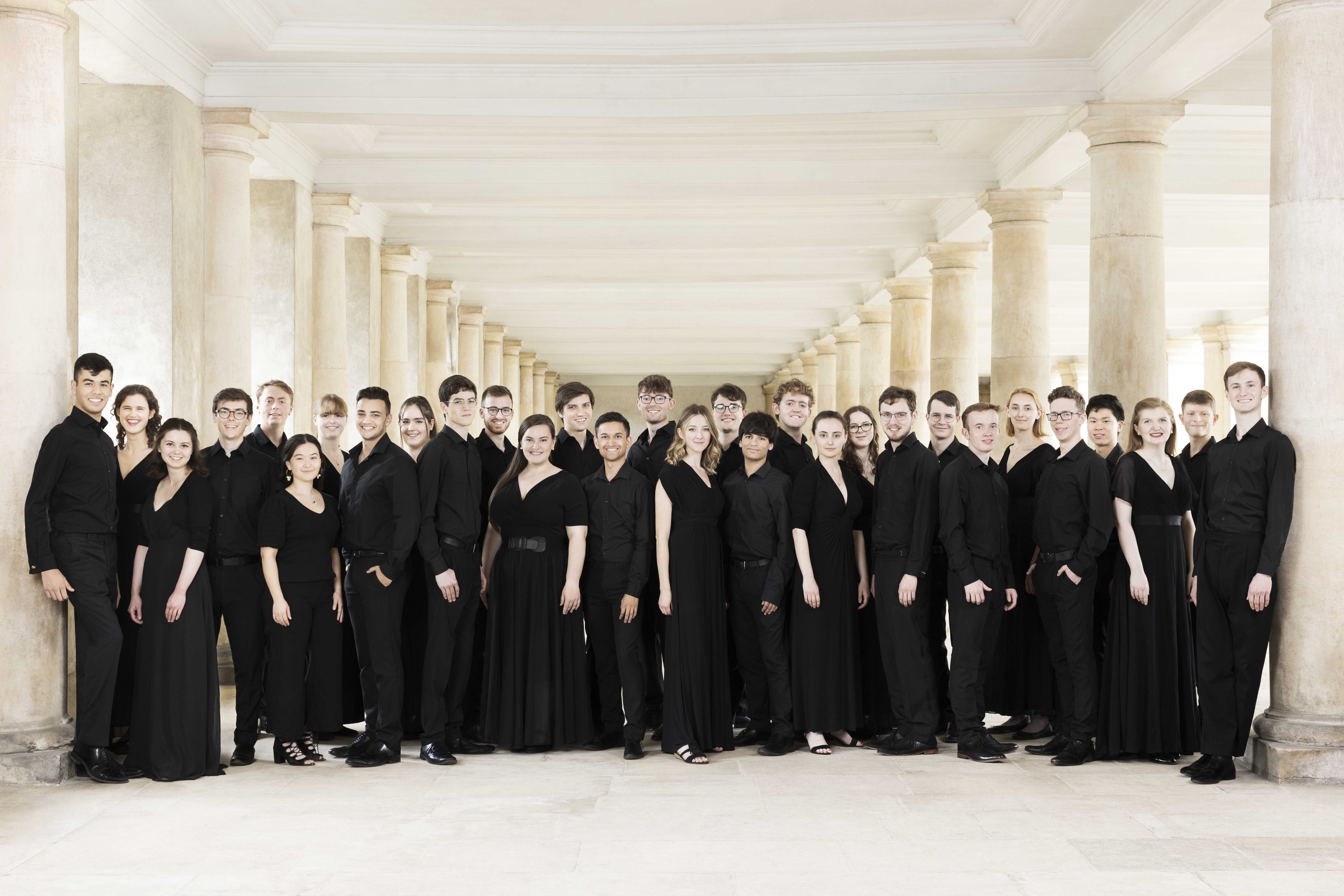Baltic Exchange - Classics Today.com
> See recording details...This is a major release that choral music fans will not want to miss. Here is a program of modern works (most written within the last 10 years) that listeners can immediately appreciate for the obvious sophistication and freshness of the choral writing–unquestionably “modern” in sound and technique–but also for the uniformly successful and pertinent treatment of texts, the judicious and skillful use of such devices as clusters and ostinatos, the virtual absence of faddish vocal “effects” and gratuitous dissonance, and, importantly, the consummate singability–and thus assured listenability–inherent in each of these scores. This is new music that you can sit back and enjoy rather than endure!
Choral music always has been an integral part and passion of life in Latvia, Lithuania, and Estonia, and although the rest of the world has some exposure to a handful of composers from these countries and cultures, our familiarity doesn’t go much farther than the work of such unquestionably important names as Arvo Pärt, Veljo Tormis, Peteris Vasks, and Eduard Tubin. Paul Hillier and the Estonian Philharmonic Chamber Choir, in their Baltic Voices series for Harmonia Mundi (see Reviews), have appreciably expanded that list of composers, and this new release takes it beyond, to include the remarkable voices of Latvian composers Ugis Praulinš and Maija Einfelde, Lithuanian Vytautas Miškinis, and Estonian Urmas Sisask.
From the assertive opening chords of Praulinš’ Missa Rigensis you will be engaged, and through the next several minutes your commitment will be complete: this is an impressive and powerful 21st century setting of the age-old Mass, written for the “vast acoustic of Riga’s medieval cathedral”, its every movement uniquely, richly characterized and textually respectful, its expressive elements remarkably varied and masterfully designed to elicit meaning and ensure understanding. There is so much to note here–Praulinš’ distinctly clever treatment of the notoriously difficult Credo text, for example–but rather than write more comments about the music, I urge you to just listen for yourself.
And after the Mass you still have nearly 40 more minutes of pleasurable discovery, from the “earthy” sounds and textures of Einfelde’s cycle of three poems by Fricis Bärda, whose subjects are Evening, Prayer, and Heaven, to Sisask’s differently and infectiously primal–rhythmically and harmonically–Benedictio, a piece with the sort of elemental force and energy that no group of singers can resist! Vytautas Miškinis’ Angelis suis Deus is a lovely, short, immediately ingratiating piece–would that I could find a published copy–written for the 40th birthday of Trinity Choir director Stephen Layton.
There’s much more here to enjoy–and really, it is all truly enjoyable, as well as a bit challenging (try Praulinš’ ecstatically virtuosic Laudibus in sanctis, for instance) and certainly many-times repeatable. If you’re the director of a fairly accomplished choir you will be looking for some of these works–and it’s too bad that record labels tend not to list publishers of choral works along with the rest of the performing and recording information (a small amount of trouble but much appreciated by a certain devoted segment of listeners). And speaking of recording documentation, the notes by Gabriel Jackson (himself a first-rate composer) are excellent.
I should say that the Choir of Trinity College, Cambridge is an ideal advocate for these works–as this ensemble has been for many years for many other composers–and conductor Stephen Layton must be commended for promoting and following through in such stellar fashion with this ambitious and ultimately rewarding program. The sound, from the heavenly acoustics of Ely Cathedral, is, well, heavenly. Hopefully there will be more to come from Layton and his superb choir, drawing from the incredible wealth of repertoire from three of the most musically rich nations on the planet. We’ll be waiting.
David Vernier

Hyperion Records CDA67747
